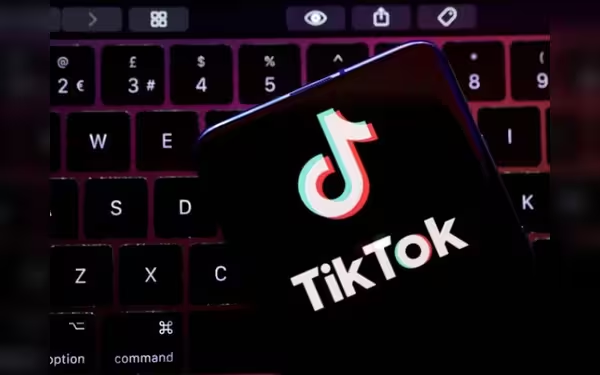Saturday, November 16, 2024 05:33 PM
TikTok Bans Russian State Media Accounts Ahead of US Elections
- TikTok bans nearly 40 Russian state media accounts.
- Action taken to combat misinformation before US elections.
- Concerns over foreign influence on public opinion.
 Image Credits: tribune.com.pk
Image Credits: tribune.com.pkTikTok bans dozens of Russian state media accounts to combat misinformation ahead of the US elections, raising concerns about foreign influence.
In a significant move reflecting growing concerns over misinformation and security, TikTok has banned dozens of Russian state media accounts. This decision comes just ahead of the upcoming US elections, a time when the integrity of information is crucial. The platform's action aligns with similar steps taken by other major tech companies, including Meta, which has also restricted Kremlin-backed media for allegedly using deceptive tactics to influence public opinion.
According to reports from the Russian news agency RT, nearly 40 accounts associated with Sputnik, a state-funded news agency, have been deleted from TikTok. However, TikTok has not provided any specific explanation for this sweeping ban. This lack of transparency raises questions about the criteria used to identify and remove these accounts, leaving many to speculate about the underlying motives.
The timing of these actions is particularly noteworthy. With the US elections approaching, there is heightened scrutiny on how foreign entities might attempt to sway public opinion through social media platforms. The fear of misinformation campaigns has prompted tech companies to take a more proactive stance in monitoring and regulating content that could potentially disrupt democratic processes.
While some may argue that these bans infringe on freedom of speech, it is essential to consider the broader implications of allowing state-sponsored media to operate freely on platforms like TikTok. The potential for misinformation to spread rapidly can have dire consequences, not just for elections but for public trust in media as a whole.
TikTok's decision to ban Russian state media accounts is a reflection of the ongoing battle against misinformation in the digital age. As social media continues to play a pivotal role in shaping public discourse, it is crucial for platforms to remain vigilant and take necessary actions to protect the integrity of information. The challenge lies in balancing the need for free expression with the responsibility to prevent the spread of harmful content. As users, we must stay informed and critical of the information we consume, especially in these politically charged times.













